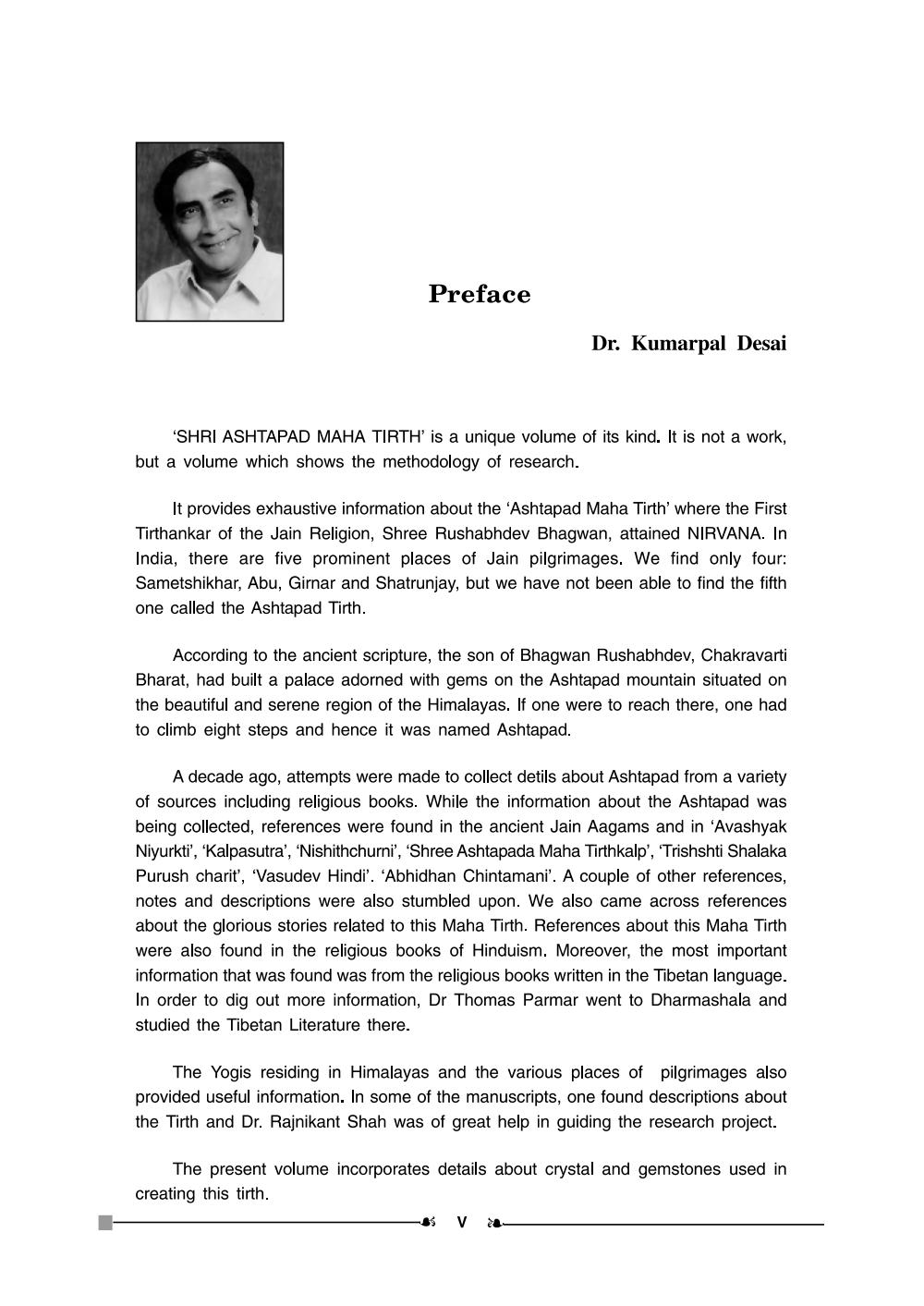________________
Preface
Dr. Kumarpal Desai
'SHRI ASHTAPAD MAHA TIRTH' is a unique volume of its kind. It is not a work, but a volume which shows the methodology of research.
It provides exhaustive information about the 'Ashtapad Maha Tirth' where the First Tirthankar of the Jain Religion, Shree Rushabhdev Bhagwan, attained NIRVANA. In India, there are five prominent places of Jain pilgrimages. We find only four: Sametshikhar, Abu, Girnar and Shatrunjay, but we have not been able to find the fifth one called the Ashtapad Tirth.
According to the ancient scripture, the son of Bhagwan Rushabhdev, Chakravarti Bharat, had built a palace adorned with gems on the Ashtapad mountain situated on the beautiful and serene region of the Himalayas. If one were to reach there, one had to climb eight steps and hence it was named Ashtapad.
A decade ago, attempts were made to collect detils about Ashtapad from a variety of sources including religious books. While the information about the Ashtapad was being collected, references were found in the ancient Jain Aagams and in 'Avashyak Niyurkti', 'Kalpasutra', 'Nishithchurni', 'Shree Ashtapada Maha Tirthkalp', 'Trishshti Shalaka Purush charit', 'Vasudev Hindi'. 'Abhidhan Chintamani'. A couple of other references, notes and descriptions were also stumbled upon. We also came across references about the glorious stories related to this Maha Tirth. References about this Maha Tirth were also found in the religious books of Hinduism. Moreover, the most important information that was found was from the religious books written in the Tibetan language. In order to dig out more information, Dr Thomas Parmar went to Dharmashala and studied the Tibetan Literature there.
The Yogis residing in Himalayas and the various places of pilgrimages also provided useful information. In some of the manuscripts, one found descriptions about the Tirth and Dr. Rajnikant Shah was of great help in guiding the research project.
The present volume incorporates details about crystal and gemstones used in creating this tirth.
- V -




